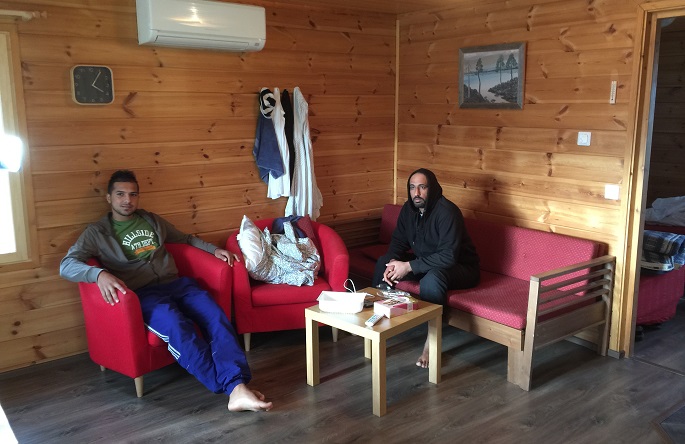Sweden ruling party to reform housing rules for asylum seekers, if re-elected
Published : 04 Sep 2018, 23:01
With less than a week to go before Swedes head to the polls in the country's general election, the Swedish government announced that accommodation rules for asylum seekers will be reformed if the Social Democrat-Green Party coalition remains in power.
Outlining the proposals on its own website on Tuesday, the government claimed the new policies would counteract the negative consequences of Sweden's so-called EBO law, under which asylum seekers are allowed to arrange, and receive allowance for, independent housing while they wait for the Swedish Migration Agency to process their asylum applications.
The EBO law has been criticized for leading to segregation and overcrowding in towns with so-called "socio-economically challenged" areas since many asylum seekers who take advantage of the law tend to choose to move in with friends or relatives who already live in small apartments in immigrant-dense areas.
Such living conditions tend to "delay individuals' integration in Swedish society", the government statement reads, "and in some areas EBO can, and already has, led to problems for children and young people in school, to psychological and physical ill-health, to unemployment and increased segregation".
One of the two proposed measures involves denying a daily financial allowance towards rent for asylum seekers who arrange for independent housing in areas with "socio-economic challenges" in certain municipalities. It is up to the municipalities themselves to define which areas should be included here.
The other proposal is that if an asylum seeker arranges accommodation in a socio-economically challenged area, he or she must choose a residence that is appropriately sized for the number of people living in it and not be overcrowded.
Otherwise, the asylum seeker will be denied the right to a daily financial contribution. Again, the individual municipalities will set the terms.
Further, the Swedish Migration Agency will continue to be responsible for arranging accommodation for asylum seekers who choose not to apply for independent housing under the EBO law.
The government believes the new rules would encourage asylum seekers to settle in a wider range of areas than they do currently, and that the rules would help them avoid overcrowded living conditions.
This would also increase asylum seekers' chances of integrating in Swedish society as they wait for their applications to be processed and afterwards, provided they are granted a Swedish residence permit.
Municipalities with areas that are socio-economically challenged would also improve their chances of offering welfare services to all residents, both asylum seekers and Swedish citizens, according to the government.


